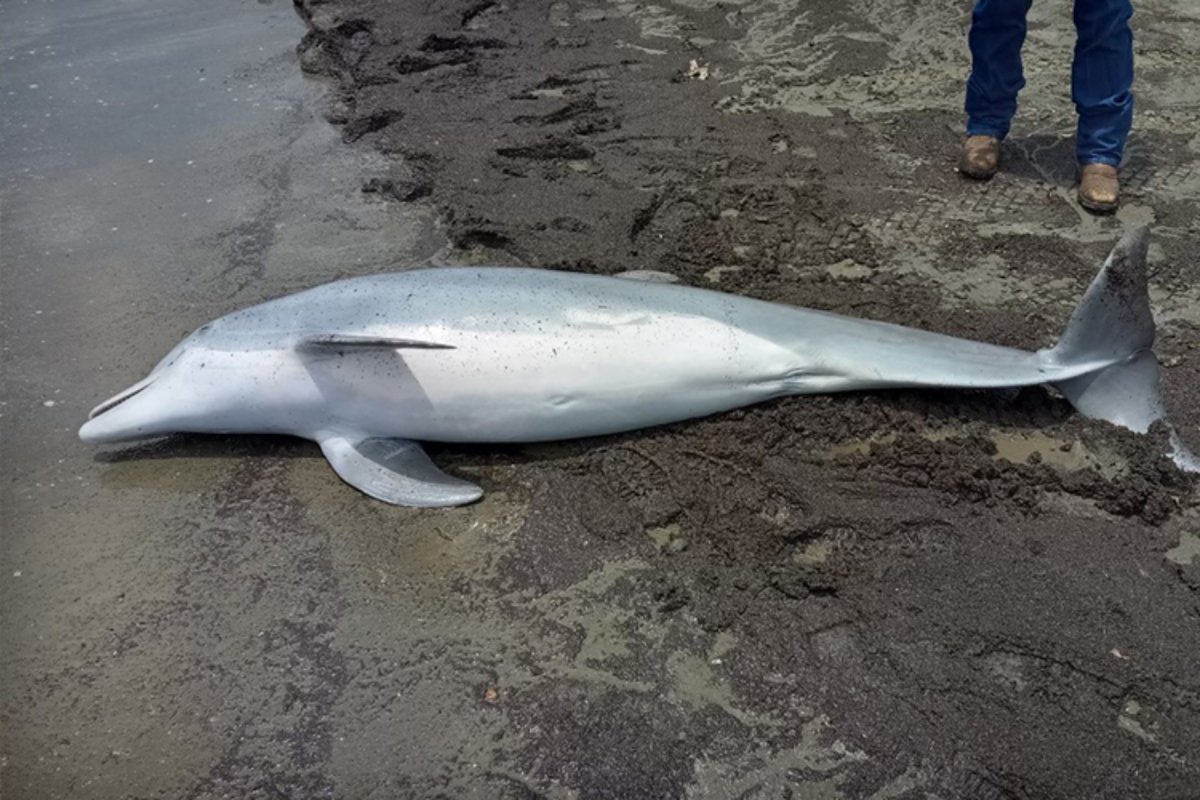Multiple bullets have been discovered in the carcass of a dead dolphin found on a beach in Louisiana, an animal autopsy has revealed.
The dolphin was reported to NOAA Fisheries on March 13, having been discovered dead on West Mae's Beach in Cameron Paris by a member of the public.
According to a NOAA statement, there were "multiple bullets lodged" in the juvenile bottlenose dolphin's "brain, spinal cord, and heart", consistent with being shot with a firearm. The animal appeared to have died from the internal trauma, which occurred at or near the time of death.

NOAA's Office of Law Enforcement is investigating the mysterious death of the dolphin and is appealing to the public for help. A substantial cash reward has been offered for any information leading to a criminal conviction or the assessment of a civil penalty.
"We are offering a reward of up to $20,000 for information leading to a criminal conviction or the assessment of a civil penalty," NOAA Fisheries said in the statement.
While generally not endangered, bottlenose dolphins face numerous challenges and dangers, including pollution, collisions with boats, entanglement in fishing gear, oil spills, and various forms of human disruption, like underwater noise.
Bottlenose dolphins are found in warm and temperate seas worldwide, from polar to tropical waters, inhabiting both offshore and inshore environments, including bays, estuaries, and river mouths. These dolphins are highly social creatures, typically found in tight-knit social groups called pods, which can number from a few individuals to over a dozen.
All species of whales and dolphins are protected under the Marine Mammal Protection Act. This prohibits the harassment, harming, killing, or feeding of wild dolphins, with breaking these rules resulting in up to $100,000 in fines and up to one year in jail per violation.
Several other similar incidents have occurred recently: in mid-March, a great white shark was found decapitated on a beach in New Zealand, with its head nowhere to be seen, while in February, an endangered species of sawfish was discovered on the shore of a Florida Keys beach with its saw-like rostrum having been cut off. The sawfish, which are protected under the Endangered Species Act, also sparked an investigation by NOAA's Office of Law Enforcement, with $20,000 also being offered for information.
Do you have an animal or nature story to share with Newsweek? Do you have a question about bottlenose dolphins? Let us know via science@newsweek.com.
Uncommon Knowledge
Newsweek is committed to challenging conventional wisdom and finding connections in the search for common ground.
Newsweek is committed to challenging conventional wisdom and finding connections in the search for common ground.
About the writer
Jess Thomson is a Newsweek Science Reporter based in London UK. Her focus is reporting on science, technology and healthcare. ... Read more
To read how Newsweek uses AI as a newsroom tool, Click here.








